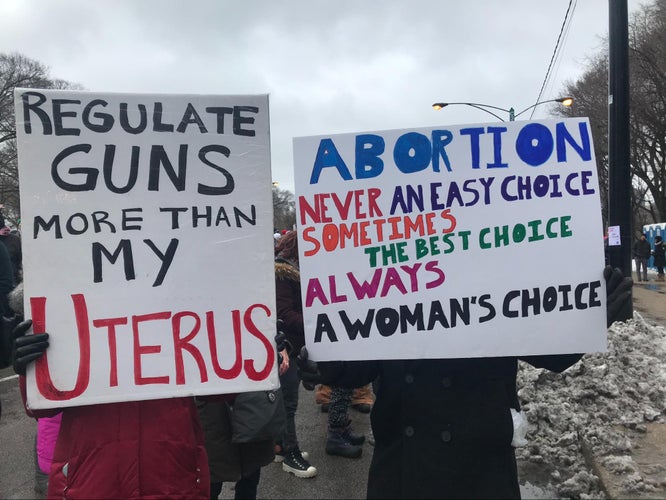The Women’s Health Protection Act passed on Sept. 24, 2021, through the House of Representatives and now awaits a vote in the Senate. While the chances of its passage in the Senate are slim, the debate surrounding it has shed light on the lack of support and autonomy that women hold as a result of inhumane government restrictions. The act signifies a much-needed milestone for female reproductive rights, as this year has been marked by some of the harshest abortion laws this country has seen.
A troubling Texas Heartbeat Bill was signed into law this past May and took effect at the beginning of September. The law, which drew widespread criticism, would allow citizens to sue anyone who received an abortion and those who performed or even aided, to any degree, someone who received an abortion for at least $10,000.
This was especially problematic because it gave ordinary citizens the power to punish others if they were to come across information indicating they may have been involved in an abortion. This could lead to major privacy and security issues if those who felt strongly against abortion decided to pursue those who were attempting to receive or provide an abortion.

Right now, many states have imposed restrictions on abortion access, and each state’s laws differ when it comes to when, if at all, a woman is allowed to have an abortion. This makes it extremely difficult for women to gain access to equitable treatment as there is no nationwide consensus and system in place for those seeking medical care. This has resulted in many women having to travel long distances to consult abortion doctors and seek care without the fear of punishment. Women who lack health insurance or struggle financially are at an even greater disadvantage in such situations.
Many doctors are also hesitant to provide consultations and treatment for their patients involving abortive care for fear of breaking state laws. The Women’s Health Protection Act would give doctors the freedom to practice medicine and take care of their patients without the restrictions and threats they have been facing.
More specifically, the law would allow a patient to go through with an abortion without any restrictions as long as the doctor determines that the procedure is safe and appropriate for the patient’s situation. The law also bans any restrictions on the physician for withholding abortive care, which essentially guarantees a physician autonomy from the state in treating their patient. With the passage of this act through the Senate, lawmakers can ensure that the sacred patient-provider relationship is protected, one that has been increasingly threatened by laws such as the Texas Heartbeat Act.
The country has faced numerous inhumane laws that have restricted abortion this year, and this act would reverse many of them by taking national precedence over state laws. It is one of the biggest steps forward since the Supreme Court’s Roe v. Wade decision back in 1973. Most importantly, the national protection that this act offers is a sign of respect and recognition of a woman’s autonomy over her own body.


